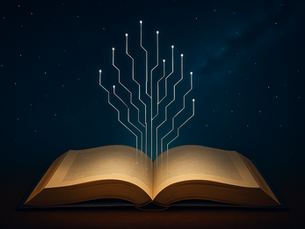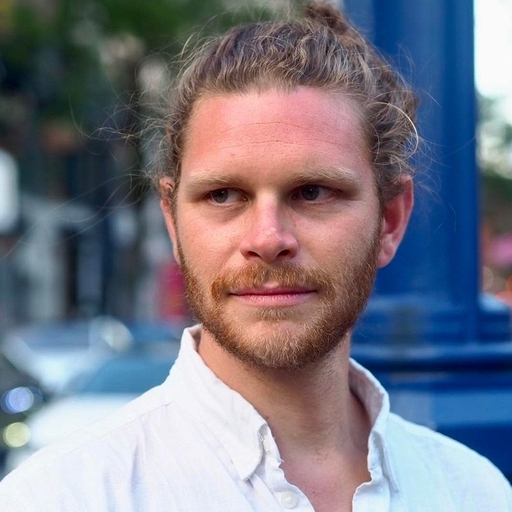top of page
Explorations in Science and AI


FirstPrinciples Appoints Victor Galitski as Inaugural Member of Scientific Advisory Board
FirstPrinciples announces the appointment of Victor Galitski as the inaugural member of its Scientific Advisory Board to provide guidance on technical direction and alignment of the AI Physicist with modern scientific standards.
Latest Articles


FirstPrinciples Appoints Victor Galitski as Inaugural Member of Scientific Advisory Board
FirstPrinciples announces the appointment of Victor Galitski as the inaugural member of its Scientific Advisory Board to provide guidance on technical direction and alignment of the AI Physicist with modern scientific standards.

FirstPrinciples
Feb 5


Matt von Hippel
May 15, 2025


FirstPrinciples
Mar 21, 2025


Kamran Naim
Mar 6, 2025


FirstPrinciples Appoints Victor Galitski as Inaugural Member of Scientific Advisory Board
FirstPrinciples announces the appointment of Victor Galitski as the inaugural member of its Scientific Advisory Board to provide guidance on technical direction and alignment of the AI Physicist with modern scientific standards.

FirstPrinciples
Latest Articles
Latest Articles


Between tools and theory: Reflections from the Machine Learning and the Physical Sciences workshop, NeurIPS 2025
A reflection on ML4PS 2025, where researchers in physics and machine learning grappled with the role AI should play in scientific discovery, and what it would take to move from process acceleration toward deeper scientific insight.

FirstPrinciples
Jan 285 min read


The AI Physicist reaches its first autonomy milestone (ahead of schedule)
The team at FirstPrinciples has reached the AI Physicist’s first autonomy milestone ahead of schedule, assembling the early loops of a system that will guide its own scientific reasoning from research to hypothesis and beyond.

FirstPrinciples
Dec 9, 20255 min read


The case for specialization: Building scientific AI that thinks like a physicist
Large Language Models have changed how we think, work, and do science, but can they truly reason like scientists? At FirstPrinciples, we’re exploring the limits of AI generalization and the promise of specialization through the development of the AI Physicist.

Matthias Le Dall
Oct 21, 20255 min read


Strings, Symmetry, and the Shape of Space: The Physics of Shiraz Minwalla
With a deep passion for physics, Shiraz Minwalla investigates the complexities of black holes, grey galaxies, and beyond.
Colin Hunter
Oct 8, 20254 min read


AI and openness at CERN: FirstPrinciples demos the AI Physicist at the Open Science Fair
FirstPrinciples presented an early demo of its AI Physicist at the Open Science Fair, held this year at CERN. The event sparked conversations on trust, openness, and the role of AI in research, underscoring how collaboration will shape the future of discovery.

FirstPrinciples
Sep 30, 20255 min read


In the age of AI, small colleges are punching above their weight
In a research world defined by scale and AI-driven discovery, small colleges are proving impact isn’t measured in dollars. At places like Wellesley and Bowdoin, close mentorship, collaborative problem-solving, and a readiness to experiment with new tools are shaping the next generation of scientists to navigate a rapidly evolving research landscape.

Bryné Hadnott
Sep 18, 20256 min read


Chain-of-thought seen as key to AI safety, but experts warn it’s fragile
Chain-of-thought reasoning has become a rare interface between human and machine logic. But a new paper warns that the window may be closing.

FirstPrinciples
Sep 11, 20255 min read


The physics of AI hallucination: New research reveals the tipping point for large language models
Physicist Neil Johnson has mapped the exact moment AI can flip from accurate to false, and he says understanding the physics could be the key to safer systems.
Colin Hunter
Sep 3, 20256 min read


Scientists are leaving academia for industry, here’s why it’s happening now
More scientists are leaving academia, trading tenure-track hurdles for the speed and flexibility of industry. For physicist Elizabeth Frank, that shift meant moving from mapping Mercury to mining the Moon — swapping publication bottlenecks for the fast, interdisciplinary problem-solving of space startups, and using AI to revive data gathered half a century ago.

Bryné Hadnott
Aug 27, 20256 min read
bottom of page

















